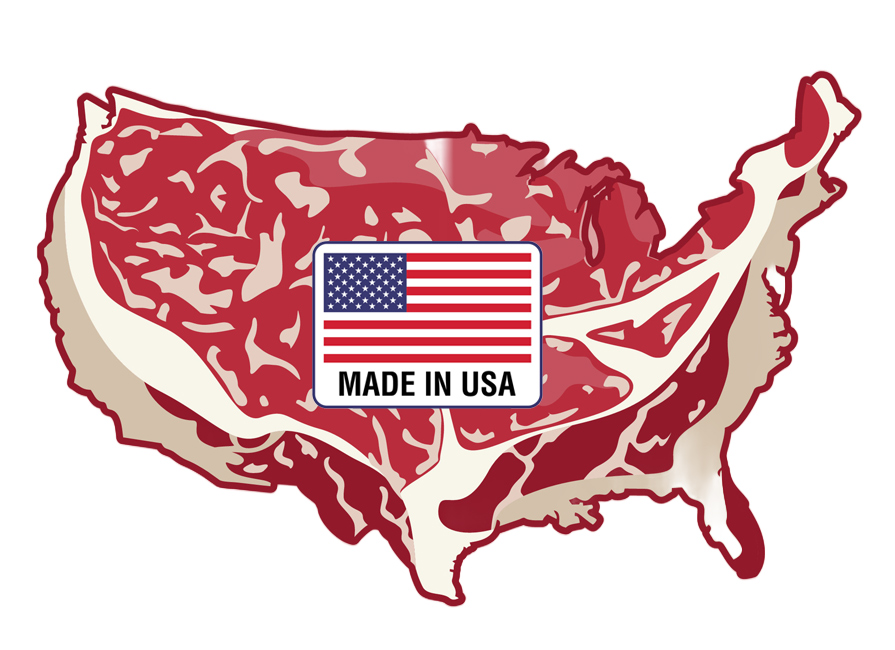In today's increasingly food-conscious world, consumers expect a label to mean what it says—including the…
Gunther Op-Ed Published Today
Farming Needs to Go Back to the Future
 Asheville, NC Citizen-Times, October 27, 2009–The rural American landscape has changed in a way that can now imperil human health. In the name of efficiency, industrial farms have uprooted the family farm and the numerous jobs that go with it. Today the meat, milk and eggs on the average American’s table travel to supermarkets from places that more closely resemble factories than farms. On these industrialized operations, animals are confined indoors, in numbers far exceeding their natural social groups. They are forced to eat, drink, and in many cases stand in their own feces. These stressful conditions incubate and cause many diseases.
Asheville, NC Citizen-Times, October 27, 2009–The rural American landscape has changed in a way that can now imperil human health. In the name of efficiency, industrial farms have uprooted the family farm and the numerous jobs that go with it. Today the meat, milk and eggs on the average American’s table travel to supermarkets from places that more closely resemble factories than farms. On these industrialized operations, animals are confined indoors, in numbers far exceeding their natural social groups. They are forced to eat, drink, and in many cases stand in their own feces. These stressful conditions incubate and cause many diseases.
To compensate for these unsanitary conditions – and to maintain growth among animals living in conditions that would normally sicken them – industrial operations rely on daily “sub-therapeutic” doses of antibiotics in water and feed, regardless of need. According to the Union of Concerned Scientists, 70 percent of the antibiotics and related drugs used in this nation are fed to farm animals in low doses – not enough to treat an infection, just enough to prevent one.
So, why do we care about the use of antibiotics in farm animals? We care because these antibiotic-resistant “superbugs” have now become a threat to our own health. With antibiotics around all the time, bacteria develop resistance, and the resulting antibiotic-resistant bacteria multiply and thrive. Kellog Schwab, director of the Johns Hopkins Center for Water and Health, said that if he tried, he could not build a better incubator of resistant pathogens than a factory farm. This is exactly the sort of scenario your doctor warns against when she cautions you to finish your course of antibiotics. Physicians prescribe full doses of antibiotics for humans over a concentrated period of time for specific treatments because we know that the future effectiveness of these drugs depends on using them sparingly.
According to an estimate by the Institute of Medicine in 1998, antibiotic resistant bacteria add an additional $4 billion to $5 billion to the cost of the public health system. With resistance growing, this statistic surely has grown, too. Schwab says, “This development of drug resistance scares the hell out of me. If we continue on and we lose the ability to fight these microorganisms, a robust, healthy individual has a chance of dying, where before we would be able to prevent that death.” When we overuse them, we risk losing important treatments that our lives depend upon.
Industrial agriculture cannot kick the habit of antibiotics on its own. A legislative solution called the Preservation of Antibiotics for Medical Treatment Act (PAMTA) is now before Congress. This bill would address industrial farming’s unhealthy dependence on drugs by phasing out the seven classes of antibiotics that are crucial to human health in the United States. With PAMTA, sick animals would still receive the antibiotic treatment that they need – but only when sick, just like with humans.
I encourage Congress to pass the Preservation of Antibiotics for Medical Treatment Act, and to clean up our food system – for the health of our farms, and for ourselves.
Andrew Gunther is Program Director, Animal Welfare Approved. The Animal Welfare Approved program and food label promote the well-being of animals and the sustainability of humane family farms, uniting conscientious consumers with farmers who raise their animals with compassion. Animal Welfare Approved is “setting the standard for how farm animals should be taken care of,” according to Robert. F. Kennedy, Jr. The Animal Welfare Approved program was recently lauded by the World Society for the Protection of Animals as having the highest animal welfare standards of any third party certifier in the US. www.AnimalWelfareApproved.org


